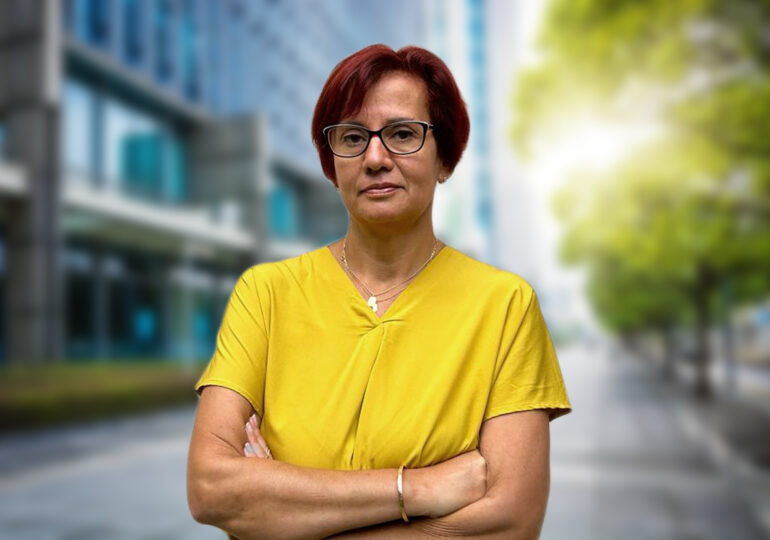„Simion is not a spy and did not have meetings with Russian intelligence agents,” is the unequivocal statement of Marcel Ciolacu, following a long series of summonses from his opponents and after an equally firm statement from the chairman of the SRI control committee, according to whom „there are accusations and clear evidence that George Simion had meetings with GRU officers.”
Why Marcel Ciolacu felt the need to close the discussion is not very difficult to understand.
On one hand, and probably most importantly, because it represented a major vulnerability for the image of the Romanian state and, implicitly, the prime minister. The idea that a Russian agent could not only become a parliamentarian but also a candidate with high chances of reaching the presidential final under the eyes of the intelligence services and authorities in Romania is absolutely terrible.
Such a situation would have made Romania a vulnerability for NATO and the EU at the border with war, because the defense systems would either not work or be so corrupt as to allow a Russian agent to reach the position of managing not only Romania's most important secrets but also those of the entire West.
I have no doubt that it was not easy for Mr. Ciolacu to make the clarification, as long as there is a significant chance of having Mr. Simion as a rival in the second round, when the narrative of the danger he represents would have been useful. He had actually prepared for it, but in a softer form.
Ciolacu ignited the fire
Let's remember that at the beginning of the year Mr. Ciolacu came out to tell the people that he asked the Moldovan prime minister for details on the reasons for extending Mr. Simion's ban from entering Moldova and communicated that the reasons are justified. He launched suspicion, shadow, as a help in view of the euro-locals and then the presidential elections.
However, the narrative far exceeded the moderate limits, suspicions, subtext desired by Mr. Ciolacu and became an explicit accusation, made officially by the top of the SRI Committee.
Just because he jumped on the topic a few months ago and is rightly suspected of wanting Mr. Simion as a rival in the final, against whom he believed he would easily win, Mr. Ciolacu's firm statements now are under a significant suspicion. And despite the documents, the scandal was so big that some doubts remained.
Here would have been the place and role of strong and credible institutions to take on the task of shedding light and calming the extremely problematic scandal for Romania, on one hand because of the vulnerability it projects as shown earlier, and on the other hand because the entire vote in the first round and, by contagion, the parliamentary score, will be dictated by the polarization around George Simion: those who will choose him because he scared the whole system and because he emerges as a victim of it, and those who will go for a strictly utilitarian vote dictated by the imperative of stopping Simion, regardless of any other considerations.
The Great Silences
An institution called upon to shed light on such a scandal is the SRI. However, it remains silent. And if it were to speak? Years of suspicions, sometimes justified, of interference in political games, poor communication, the fact that it has not had civilian leadership for a year and a half have made the SRI an institution itself under a great suspicion that few would be willing to believe that, through a firm stance, it is not playing politics.
But the main institution that should have set things in order would have been the presidential one, even if its incumbent is now at the end of his term. Mr. Iohannis had the obligation to clarify a scandal with accusations and suspicions that are indeed part of the president of Romania's duties.
Mr. Iohannis, however, is still absent. Whether he is absent because he does not care, because he is angry with the people who do not want to give him even the palace prepared with such care, because he reckons, meanly, that the scandal will attract the utilitarian vote towards his chosen one Nicolae Ciucă, one of them or all together, is of little relevance.
What matters is that the President of Romania did not feel the need to clarify a scandal so detrimental to Romania from all points of view, and in this way, the presidential institution fails in its role.
And the fact that Simion has a stunning score in polls is primarily the consequence of the fact that institutions in Romania, without exception, have disappointed and abandoned the citizens. Many of them have come to not necessarily vote for a candidate, but to vote for their own anger and frustration, to which the candidate merely gives voice.
The way the scandal was handled only serves to greatly help him. He emerged as a hero, the victim of a massive smear campaign in which the high officials of the state fell like parrots, and it is possible that the predicted wave of fear will burst into an even greater wave of support in his favor.

